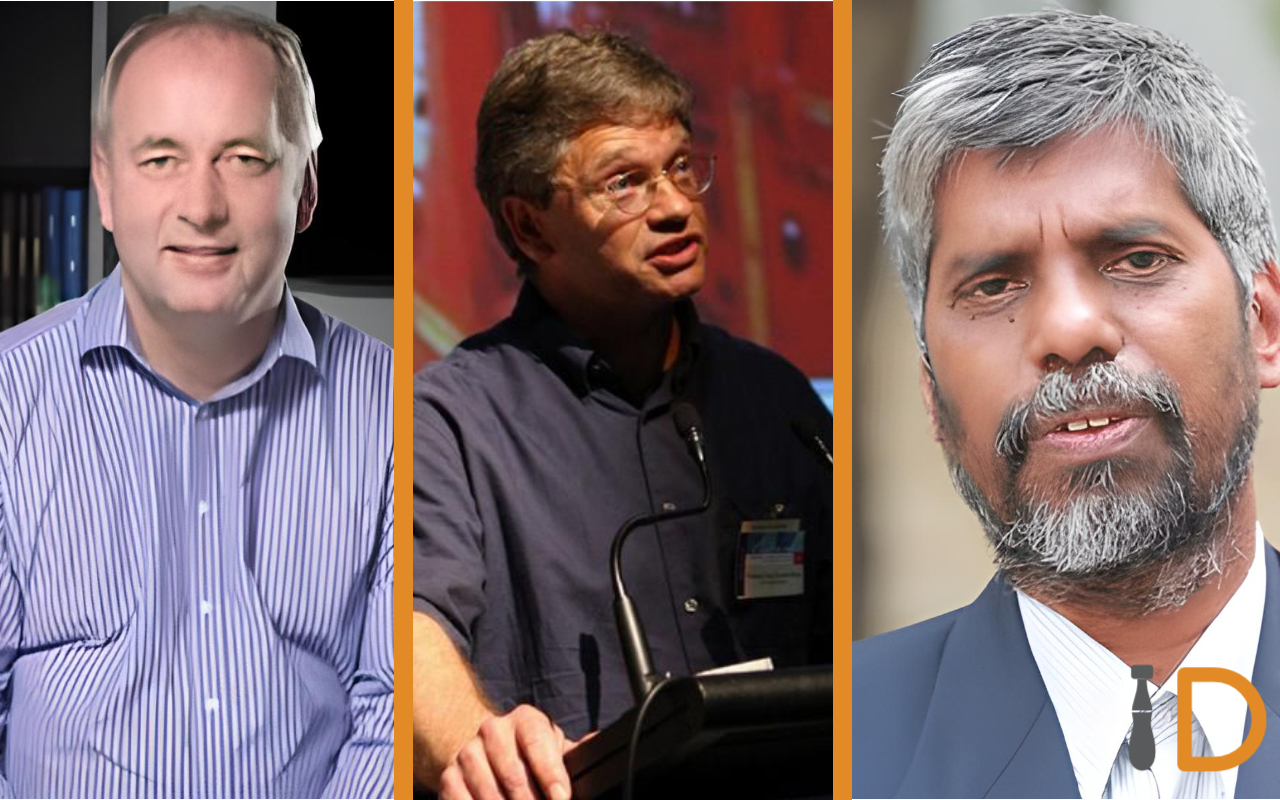
inGen is pleased to announce its new Scientific Advisory Board for AI and Robotics.
Reporting to the CEO, the scientific advisory board will provide guidance and counsel on opportunities to apply its AI and robotics products, including the Origami™ Platform.
The advisors on this board bring a wealth of expertise and a diverse range of perspectives from around the globe, which will assist inGen in driving a new era of AI and Robotics to improve the quality of life for humans.
We are eager to collaborate with these esteemed scholars and scientists as we grow our offerings to more industries and sectors.
Dr. Hugh Durrant-Whyte.
Dr. Hugh Durrant-Whyte is a world-leading authority on machine learning and robotics and applications in sectors such as cargo handling, mining, and defense. He is also one of the early pioneers of probabilistic robot navigation and SLAM.
Hugh is currently NSW Chief Scientist and Engineer and is on leave as a Professor at the University of Sydney. From 2017-18 he was Chief Scientific Advisor to the UK Ministry of Defense. From 2010-2015, he was CEO of National ICT Australia (NICTA), from 1995-2010, Director of the Australian Centre for Field Robotics (ACFR) and of the ARC Centre of Excellence for Autonomous Systems (CAS), and from 1986-1995 a Lecturer at the University of Oxford and a Fellow of Oriel College.
In his career, Hugh has worked with many major companies and co-founded three successful start-ups. He has published over 350 research papers and won numerous awards and prizes for his work, including being named the 2010 NSW Scientist of the Year. Hugh is an honorary fellow of the Institute of Engineers Australia (HonFIEAus), a fellow of the IEEE (FIEEE), of the Australian Academy of Science (FAA), of the Royal Academy of Engineering (FREng), and of the Royal Society of London (FRS).
Dr. Nick Jennings
Professor Nick Jennings is Vice-Chancellor and President of Loughborough University. Previously, Professor Jennings was the Vice-Provost for Research and Enterprise at Imperial College London, the UK Government’s first Chief Scientific Advisor for National Security, and Regius Professor of Computer Science at the University of Southampton.
An internationally recognized authority in the areas of AI, autonomous systems, cybersecurity, and agent-based computing, prof. Nick is involved with several start-ups. His research focuses on developing AI systems for large-scale, open, and dynamic environments. In particular, he is interested in how to endow individual autonomous agents with the ability to act and interact flexibly and with effective engineering systems that contain both humans and software agents. He is passionate about the real-world impact of research. He has been involved with systems deployments in domains such as business process management, smart energy systems, defense, telecommunications, sensor networks, disaster response, and citizen science.
Nick is a Fellow of the Royal Society, the Royal Academy of Engineering, the Institute of Electrical and Electronic Engineers, the British Computer Society, the Institution of Engineering and Technology, the Association for the Advancement of Artificial Intelligence (AAAI), the Society for the Study of Artificial Intelligence and Simulation of Behavior (AISB), the Royal Society of the Arts, the City and Guilds of London Institute, the German AI Institute (DFKI) and the European Artificial Intelligence Association and a member of Academia Europaea.”
Dr. Jayakumar Singaram
Dr. Jayakumar Singaram is a founding member of Rinanu Semiconductors, Epigon Media Technologies, PiiTech Systems, and GPTL. Dr. Jayakumar is also an alumnus of IIT Bombay (Ph.D. and M.Tech – Control Systems) and has been at the forefront of the emerging trends in embedded systems and IOT, having worked with organizations like HAL (Helicopter Design Bureau), Cranes InfoTech, Mistral Solutions and Essel Utilities and some significant others over a career spanning across two decades.
He has worked on critical projects such as the design and development of the Karaoke Machine (a project in collaboration with Analog Devices and MIT Media Lab) for TAITO Corp. He also worked on satellite radio receivers for WorldSpace broadcast Satellites (and DAB Radio Receivers), using low-cost Digital Signal Processors.
Follow us on Facebook, LinkedIn, Twitter, and Instagram for more news and exciting updates!
© Copyright 2015 - 2024 All Rights Reserved.